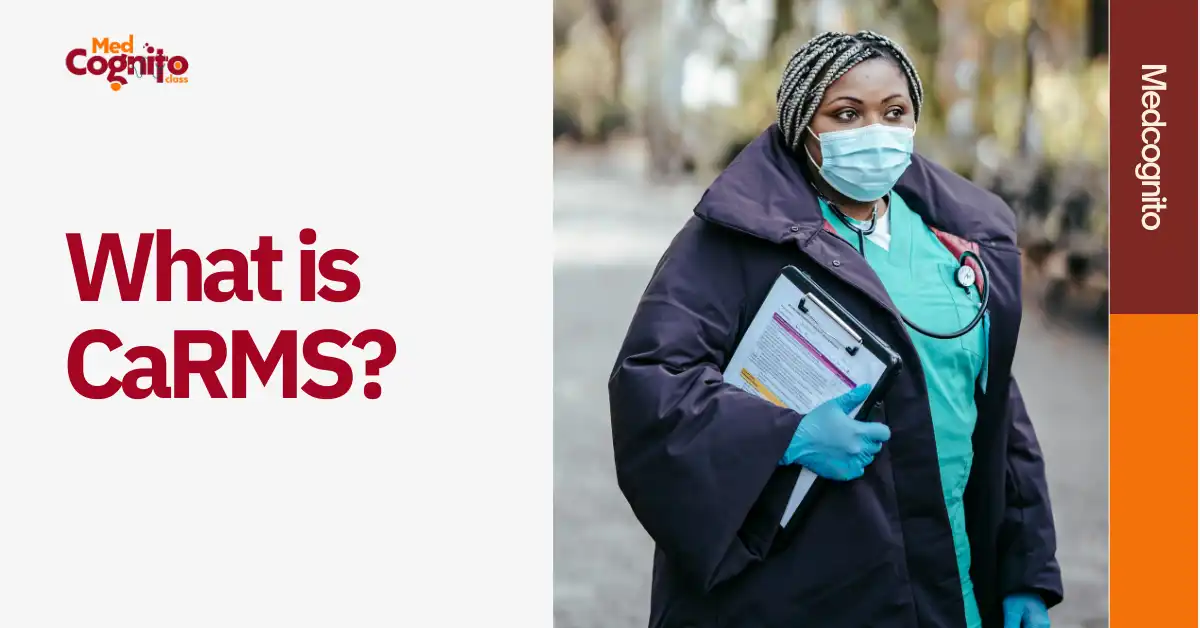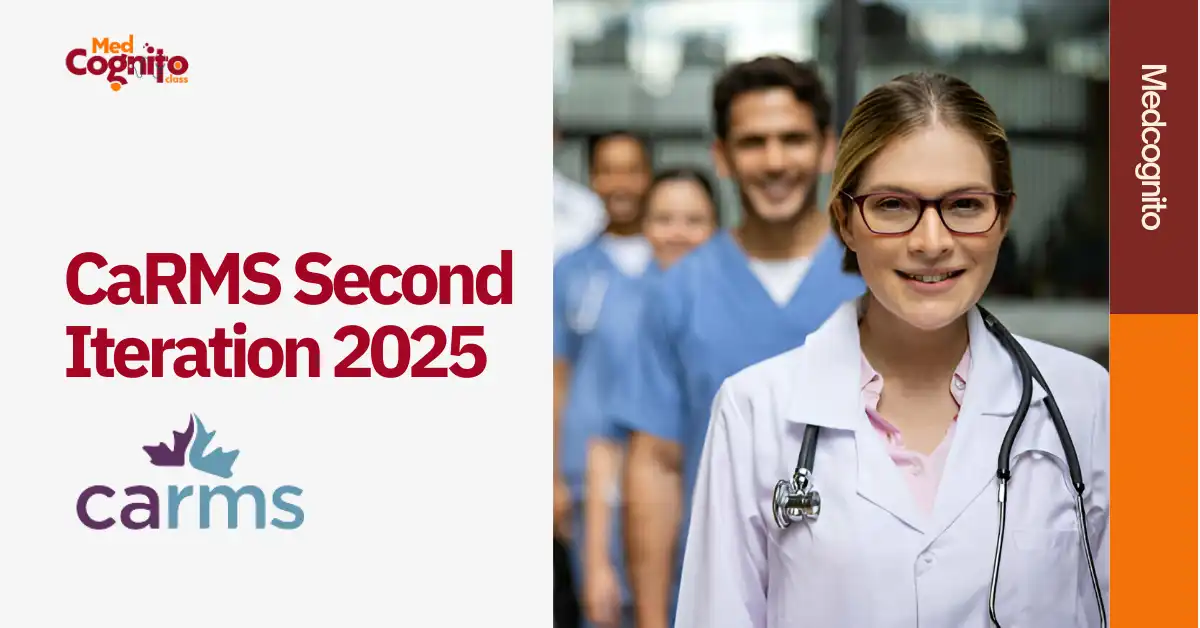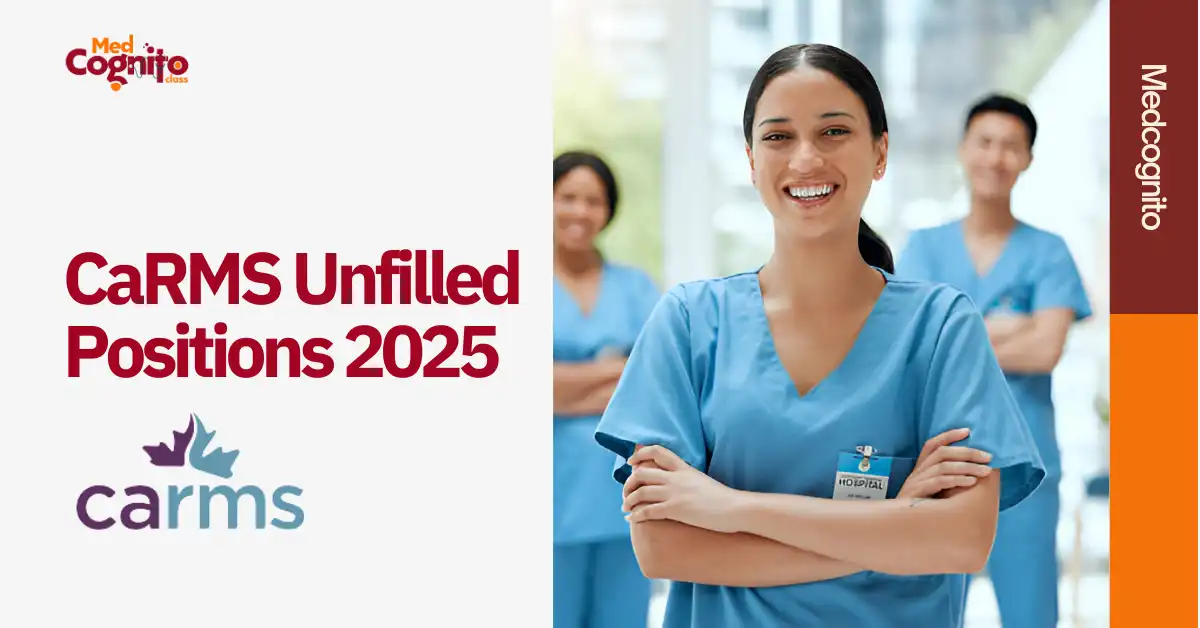Residency matching is a crucial milestone in your medical journey, setting the foundation for your professional career. The Canadian Resident Matching Service (CaRMS) facilitates this process, ensuring a fair and structured system for medical students and residency programs.
In this guide, we’ll answer frequently asked questions about CaRMS and provide insights into how the residency match process works.
Table of Contents
ToggleWhat is CaRMS?
CaRMS, or the Canadian Resident Matching Service, is an independent, non-profit organization that manages the residency match process in Canada. It allows medical students and medical school graduates to apply for residency programs and helps residency programs select candidates through a structured and fair process.
How Does CaRMS Work?
The CaRMS match process involves multiple steps:
- Confirm Eligibility: Ensure you meet the eligibility criteria for the provinces where you wish to apply.
- Submit Application: Enter your background information and apply for residency programs via the CaRMS Online portal.
- Interview Process: If a program is interested in you, they will invite you for an interview.
- Rank Programs: After the interview process, you rank the programs in your order of preference, and the programs rank candidates they interviewed.
- Algorithm Matching: The CaRMS matching algorithm then pairs candidates with programs based on these rankings.
What is the CaRMS Matching Algorithm?
CaRMS uses the Roth-Peranson algorithm, which is also used in residency matching programs worldwide. This algorithm was created by Nobel Prize-winning economist Alvin Roth and Elliott Peranson. It optimizes the matching process by considering the preferences of both applicants and programs to create the best possible outcome.
What Happens on CaRMS Match Day?
Match Day is when you log in to the CaRMS Online portal to see your match results. The process happens in two iterations:
- First Iteration: The majority of applicants are matched with programs.
- Second Iteration: If you do not match in the first round, you can participate in a second round with the remaining positions.
If you are unmatched, there is a post-match process. This process allows unmatched applicants from the second iteration to apply to programs that are still considering applications. There is no cost for the post-match process as no ranking or matching services are provided.
Interested applicants must apply to available programs directly through their CaRMS portal. The Canadian Federation of Medical Students (CFMS) provides resources and guidance to help you navigate the next steps.
Can You Change Your Match?
No. Once matched, you are legally bound to accept the residency program. The program is also required to accept you. That’s why it’s crucial to only rank programs where you genuinely want to train.
How Many Residency Programs Are Available?
There are 37 residency programs across Canada’s 18 medical schools. However, not all schools offer every specialty, so it’s essential to research available programs and their specific requirements.
Can Couples Apply Together?
Yes! If you and your partner are applying for residency, CaRMS allows you to submit a paired rank order list. This increases your chances of matching together but may slightly reduce your overall match probability.
How Much Does the CaRMS Residency Match Cost?
Budgeting for CaRMS is essential. Costs include:
- Application fees (over CAD 1,000). This depends on the number of programs you apply to and whether additional exams such as FMPROC and CASPER are required.
- Interview travel expenses (accommodation, flights, etc.). This previously was involved in the cost but because almost all programs conduct their interview sessions online. This cost has drastically reduced to the barest minimum if not zero cost now.
A well-planned budget can help you manage these expenses effectively.
What Documents Do You Need for Your CaRMS Application?
Applying for residency is similar to applying for medical school. Your CaRMS application must include:
- Curriculum Vitae (CV): Academic history, employment, research, awards, volunteer work, and extracurriculars.
- Transcripts & Medical Student Performance Record (MSPR): Sent directly to CaRMS by your school.
- Reference Letters: Typically three letters, preferably from physicians in your chosen specialty.
- Personal Statement: Explains why you’re interested in a specific program and how it aligns with your career goals.
When Should You Start Preparing for CaRMS?
It’s best for medical students to start preparing early in medical school (probably around the third year). However, for medical graduates, including international medical graduates, it is advisable to start preparing at the beginning of June since the CARMS cycle usually ends in May.
Research programs gather the necessary documents and budget for application fees. CaRMS follows a strict residency application timeline, so staying organized will improve your chances of a successful match.
Final Thoughts
The CaRMS residency match is a crucial step in your medical career. Understanding the process, budgeting for expenses, and preparing a strong application will give you the best chance at securing a residency position that aligns with your aspirations.
For financial planning and residency-related guidance, consider speaking with an Early Career Specialist who can help you navigate this transition.
If you’re planning to apply for residency through CaRMS and want to boost your chances of success, consider enrolling in the MedCognito CaRMS Prep Course. This course is designed to help international medical graduates (IMGs) and Canadian students confidently prepare for the match process from refining your CaRMS application and personal statements to mastering interviews and program selection strategies. Get the guidance you need to stand out in both the first and second iterations.
Frequently Asked Questions?
What are the principles of CaRMS?
Fairness, equity, and professionalism serve as the core principles that underpin the match process.
What documents are required for CaRMS?
Required documents include proof of Canadian citizenship or permanent residency, your official medical school transcript, a Medical Student Performance Record (MSPR), also known as a dean’s letter, and personal statements, NAC exam results, MCCQE Part 1 results, and Language Assessment results.
What is the purpose of CaRMS?
CaRMS provides a fair and transparent matching process for medical students applying to residency programs in Canada.
Can international medical graduates (IMGs) apply through CaRMS?
Yes, IMGs can apply, but they must meet specific eligibility criteria set by individual provinces.
What happens if I don’t match in the first iteration?
You can participate in the second iteration, where the remaining positions are available. CFMS also provides resources for unmatched applicants.
How competitive is the residency match process?
You can participate in the second iteration, where the remaining positions are available. CFMS also provides resources for unmatched applicants.
Do I need Canadian clinical experience to apply?
Canadian clinical experience is not a requirement to apply. However, it is beneficial to have some Canadian clinical experience. Always check the requirements of each residency program.



